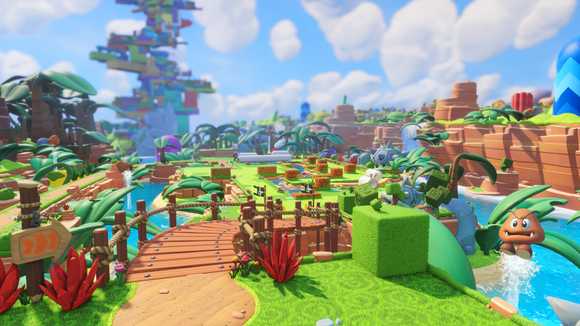There is a house. In the house, there is a room. In the room, there is a closet. In the closet, there is a box. In the box, is 2013’s top-of-the-line consumer hardware technology — dusty and dormant.
I haven’t touched my PS4 since my Switch arrived. In fact, I removed it from the living room entertainment center completely, replacing it with the Switch’s dock — unnecessary seeing as the Switch functions without being connected to a TV at all. TV optional! Sure, bouts of Mario Kart 8 aren’t quite as great without a TV, but that doesn’t happen that often in our house. Still, I was inclined to remove a console dependent on a TV for the chance that I might play the Switch in docked mode.
That’s not to say I haven’t tried playing a home console since. I recently hooked up my Xbox One to a smaller TV in our office with the intention of playing Overwatch with some friends. But after a week with Overwatch, I canceled my Xbox Live account and haven’t touched the console on since.
A friend of mine recently picked up a 3DS. The 3DS has a deep catalog, but Pokémon was his draw. Meanwhile, the Switch was released. He eyed mine, but was reluctant to pick one up due to the limited gaming catalog. He’s now put 120+ hours into The Legend of Zelda: Breath of the Wild, completing the game and conquering all 120 shrines — a herculean feat. This friend and I have been going back and forth about Mario Kart, Zelda, and Splatoon 2. Should we get ARMS? How as Super Mario Odyssey at E3?
A colleague of mine took notice of my interest in video games. We got to talking and he let me in that he’d bought a Switch. A recent father, it was the perfect form-factor for him to use while nurturing his newborn. He completed Breath of the Wild long ago.
I’ve had more communication with friends and Twitter users regarding Switch experiences than I’ve ever had with PS4 or Xbox One. More than the gimmick of being able to play anywhere and with friends and family straight out of the box, people are investing in their experiences with the console and it’s reincarnating the schoolyard conversations of yore.
Nintendo’s design mastery certainly make their games ripe for conversation, but the fact that players can play the Switch on a TV, in bed, on trains, on planes, at work, at the park, in hotels… you name it!… makes conversations fuller and more frequent.
Ben Lindbergh on the Achievement Oriented podcast recently entertained a question I imagine many Switch owners have asked themselves:
… As I was trying to make this journey home and failing for a day or so, I wanted to play Tacoma — because we had gotten our review codes for Xbox One and we knew that we were going to do a podcast about it — and I couldn’t because Xbox One is not a portable console. I never would have thought anything of this in the past, but now that I am a Switch owner this just seems backwards.
It’s like I can’t play Tacoma on the road? Now, of course you could get Tacoma for Steam, but I only had a netbook with me. I had no mouse or anything — I didn’t want to play it that way and it’s not quite the same — but what I’m wondering is, do you think future consoles will feel pressure to incorporate Switch functionality?
If they announce PS5 a year from now and it has all the new specs, the graphics look great and a big hard drive and processor and gigaflops out the wazoo, but it doesn’t have portability — it doesn’t do what the Switch does — would you be disappointed? Do you feel like this has to be a component of every console going forward?
The Switch should have been a no-brainer decision for consumers at announce. Tech shrinks. We’ve gone portable. Smart phones rule consumer tech. It was simply Nintendo’s strike out with the Wii U that made the public more weary of Nintendo’s execution on the promise than the promise itself.
The new PS4 Pro and Xbox One X tout teraflops, but they are still anchors. I’ve considered selling my PS4 and Xbox One not to upgrade, but to declutter. The Switch on the other hand is the perfect fit for my life. While I can’t say I won’t be buying home consoles in the future — hell, I purchased my Xbox One on the promise of Below, a game that has yet to see the light of day — unless new consoles offer the same portability as the Nintendo Switch, I will certainly be taking my time in purchasing one.


